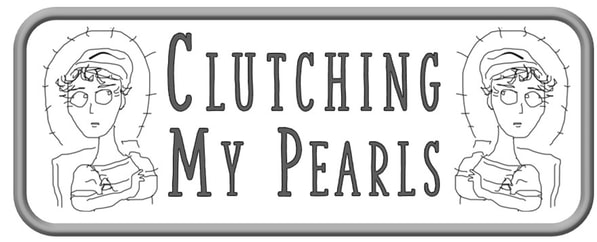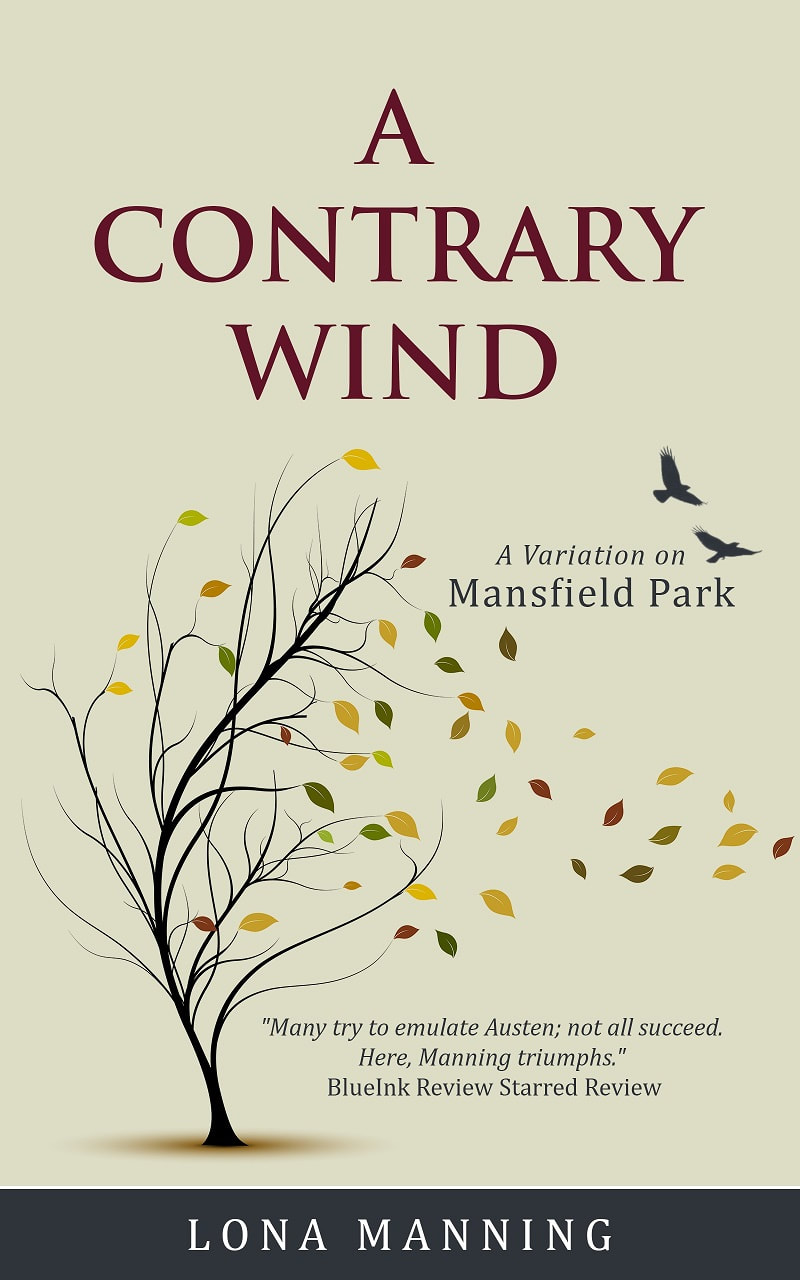|
This blog explores social attitudes in Jane Austen's time, discusses her novels, reviews forgotten 18th century novels, and throws some occasional shade at the modern academy. The introductory post is here. My "six simple questions for academics" post is here.
|
 Regret
Regret
Last year, I attended a talk by Robert Morrison, a prominent expert on Austen and the Regency. (His book, The Regency Years, is an informative and entertaining survey of the Regency period.) I was quite surprised when he floated the theory that Marianne got pregnant in Sense and Sensibility. Further, he didn't claim that this interpretation was his own take on the novel, in which case I wouldn’t raise an objection. He attributes the idea to Jane Austen--he thinks Austen hinted that Marianne got pregnant.
[Update: When I wrote this series of posts, I was only aware of Dr. Morrison's lecture, and was not aware of an article which makes the same arguments, authored by Rachel Feder and her students. This article gives the case for Marianne being pregnant, a case which I rebut on textual and other grounds here andin the next post.]
If it was worth Professor Morrison's time to devote a full lecture to this idea, it's worth my time to lay out the reasons why I disagree. And I am glad that mulling over his ideas gave me a good reason to re-read Sense and Sensibility, because I noticed things I hadn't paid any attention to before. That's mostly for my next post. Briefly, my rebuttal is:
- The text doesn’t support the theory that Marianne got pregnant, but rather contradicts it.
- The tenor of the times wouldn’t allow for such a book to be published, because you can't have a girl of good family have sex outside of marriage without also being explicit about the consequences which would befall her.
 Mrs. Jennings and her daughter Charlotte Palmer
Mrs. Jennings and her daughter Charlotte Palmer
September 20-- Marianne and Willoughby meet (according toscholar Ellen Moody’s calendar).
October 30--the planned picnic to view the Whitwell estate and grounds is cancelled by Colonel Brandon’s abrupt departure. Mrs. Jennings wonders if there's a problem with Miss Williams, whom she mistakenly thinks is Brandon’s ‘natural daughter.' This introduces the topic of illegitimacy into the novel. Instead of staying with the rest of the disappointed picnickers, Marianne and Willoughby spend the day together unchaperoned. We are told that they toured Allenham, the home of Willoughby's aged relative Mrs. Smith. Then and now, if a young couple in the first flush of mutual infatuation disappear for hours, what else are we to think?
You could protest that Willoughby wouldn't whisk Marianne into the spare bedroom at Allenham when Mrs. Smith is sitting in the drawing room one floor below and there is a full complement of servants around as well, but let's face it--ardent young lovers will find a place and a time.
Early November--Willoughby leaves abruptly.
Late November--Marianne suspects she is pregnant. She therefore has every reason, in addition to being madly in love, to accept Mrs. Jenning’s invitation to go down to London in hopes of being reunited with Willoughby.
January--Marianne is in her third month of pregnancy in London and expecting to hear from Willoughby every moment. She is anxious, restless and not interested in food. She confides in no-one. She's moody and snappish and barely civil to Mrs. Jennings, who is preoccupied with the birth of her daughter Charlotte's first baby.
Colonel Brandon absolves Marianne of wrong-doing. "Her sufferings proceed from no misconduct, and can bring no disgrace.” He contrasts Marianne with Eliza. Marianne can “turn with gratitude towards her own condition, [emphasis added] when she compares it with that of my poor Eliza, when she considers the wretched and hopeless situation of this poor girl… surely this comparison must have its use with her. She will feel her own sufferings to be nothing." Is Austen hinting that Marianne is "in an interesting condition," as people used to say? Is this one of Austen's dramatic moments when we, the reader, know the truth but we watch, as Brandon delusively thinks Marianne is pure as the driven snow?
Early April-- Marianne and Elinor travel with the Palmers to their country estate, which gets them partway home. Marianne plans to indulge in long walks, but her shoes and stockings get wet and she falls ill, as one does.
|
|
Mrs. Palmer hurries her infant to safety away from the infection, and Mr. Palmer follows. Thus there are fewer witnesses to what is really happening; Marianne doesn’t have a bad post-viral infection: she is pregnant and possibly miscarrying.
Mid-April-- Marianne is very ill and Mrs. Jennings fears she will die. Colonel Brandon hurries to fetch Mrs. Dashwood, who hopes to get to Cleveland in time to see her “darling child,” so he is also away from Cleveland at the critical time of her illness. Marianne either miscarries or has a premature child who is whisked away to a distant cottage. |
 Heedless
Heedless
Now, for my objections... When Marianne disappears for hours with Willoughby and then says she toured Allenham, Austen gives more emphasis to Marianne's rudeness than her lack of prudence: “it seemed very unlikely [to Elinor] that Willoughby should propose, or Marianne consent, to enter the house while Mrs. Smith was in it, with whom Marianne had not the smallest acquaintance.” Elinor scolds Marianne: “I would not go while Mrs. Smith was there.” Going “with no other companion than Mr. Willoughby,” is a secondary concern.
If I remember correctly, Professor Morrison suggested that Marianne did not really understand that premarital sex was wrong. I don’t think it would be possible for a girl Marianne’s age to not understand that sex outside of marriage (fornication) was wrong. Not just wrong. Very wrong. She couldn't have been brought up in the Anglican church and not know this very well, or not understood what society thought of fallen women. You couldn’t know about novels like Pamela and Clarissa or The Vicar of Wakefield without understanding that a girl was supposed to chose death before dishonor, or she ought to die if she lost her virtue. Also, when Mrs. Jennings raises the issue of Brandon's 'natural daughter,' she lowers her voice and adds: "We will not say how near, for fear of shocking the young ladies.” It's understood that the young ladies are virtuous enough to be shocked,
 Jane Shore, famous mistress to Edward IV, was publicly shamed
Jane Shore, famous mistress to Edward IV, was publicly shamed
But fornication outside of marriage is much more than an “impropriety,” like chewing your food with your mouth open or something. It was regarded as a crime, and that's how Elinor refers to it elsewhere.
Fornication was less serious than adultery, but for centuries, girls and women and sometimes even men were publicly punished by the ecclesiastical courts in England and elsewhere. Up until about the 1770s in England, you could be publicly whipped in front of your community and congregation for fornication.
Check out this link and scroll down to “sexual offences.” The punishment had abated but the strong social stigma remained. And let's not forget that in other parts of the world, adultery and fornication are still punished as crimes today.
 Heart-rending Execution of Fanny Amlett (detail), story and ballad. This case may be ficitious but one Mary Thorp, "a decent, respectable-looking young woman" was executed at York on March 11, 1808 for killing her illegitimate child.
Heart-rending Execution of Fanny Amlett (detail), story and ballad. This case may be ficitious but one Mary Thorp, "a decent, respectable-looking young woman" was executed at York on March 11, 1808 for killing her illegitimate child.
There were characters in novels of this era who argued that strictures on sex outside of marriage were ridiculous and antiquated, but these were the scurrilous villains and they made these arguments to seduce naïve girls, such as in The Farmer of Inglewood Forest. One free-thinking heroine, Adeline Mowbray, ultimately regretted her choices. It's hard to believe Marianne could wave away fornication as an "impropriety," or that Austen could present the issue in such a cavalier fashion to her readers.
If Marianne was pregnant, this would have given her a strong claim to demand that Willoughby marry her. She could have turned to her only living male relative, John Dashwood, to insist that Willoughby do the honorable thing. Granted, John Dashwood wouldn't be as generous in Darcy was in bribing Wickham to marry Lydia, but possibly he would have paid out something to keep the scandal from disconcerting his wife and mother-in-law. But Marianne does not assert her claim. She is wild to return to her home and her mother, a course of action that would lead to the inevitable discovery of her condition and the complete disgrace of the family, and the ruin of Elinor and Margaret's marriage prospects.
The narrator's description of Marianne's own thoughts undermines the theory that she went all the way with Willoughby. After Colonel Brandon hears that Willoughby has jilted Marianne for Miss Grey, he hurries round to Mrs. Jennings and reveals that his ward Eliza was seduced by Willoughby and has recently borne his child. Brandon held the story back when he thought Marianne was engaged; now that she is jilted, he hopes the revelation of Willoughby’s true character will help mend her broken heart. Elinor agrees, and she goes upstairs and tells Marianne the news. Marianne condemns Willoughby's seduction of Miss Williams, and not merely out of jealousy. She condemns the act. And here, I think is a key passage:
|
“She felt the loss of Willoughby’s character yet more heavily than she had felt the loss of his heart; his seduction and desertion of Miss Williams, the misery of that poor girl,”
She feels that she had a close call herself: “and the doubt of what his designs might once have been on herself, preyed altogether so much on her spirits, that she could not bring herself to speak of what she felt even to Elinor.” [emphasis added] "his designs" clearly means, that Marianne is asking herself, did Willoughby have honorable intentions or was he just trying to seduce me? |
|

In my opinion, Austen gives an accurate description of a bad cold developing into a post-viral infection, but I won’t repeat it all here. As Marianne falls ill at Cleveland, she does not hide herself away. She insists on staying in the parlour until she is absolutely too ill to do so. She goes to bed only reluctantly, because she still hopes to be on the road to Barton and her mother soon.
The apothecary recognized that whatever was ailing Marianne, it was probably infectious. Marianne possibly has bacterial pneumonia or a strep infection which we don’t think of as fatal today, but they were, and still can be. There is also a forgotten infectious disease called Lemierre’s syndrome which afflicts young adults and which was often fatal before the advent of antibiotics. But many a character in an old novel fell deathly ill without a precise diagnosis.
Professor Morrison suggested that Mrs. Palmer's whisking her child away strengthened the supposition that Marianne was pregnant. The word “infant,” the focus on Mrs. Palmer’s child, was intended to bring children to our minds, along with Mrs. Dashwood’s thinking of Marianne, an almost adult, as "her darling child,” as she rushed to Cleveland. I don’t find this at all convincing. I think, given the miserably high infant mortality rates of the day, taking your baby away from a possible case of infectious disease would have been standard practise. And a mother's child is always her baby.
Marianne had round-the-clock attendants at her bedside while she was ill. If Marianne had a miscarriage during the height of her illness, it would be known to Elinor, the apothecary, Mrs. Jennings, Mrs. Jenning’s maid Betsy--who is an inveterate gossip, as is Mrs. Jennings--and perhaps other servants of the household. There is the bloody linen to consider, as well--how could it be hidden from the servants?
If Marianne had a secret pregnancy, what is the point? What is Austen saying? Fornication is okay if you don't get caught? The patriarchy is bad? (This, I think, is the meaning that Morrison ascribes to it, because he reacted very feelingly when he discussed the plight of all the real-life Eliza Williamses of the past).
Here is a parody of how scholars, eager to pursue an agenda, find things in the text that just aren't there.
Previous post: Three Scholarly Books Next post: A Knave or a Fool?
|
In Mansfield Park, Maria Bertram Rushworth runs off with Henry Crawford and lives with him for some unspecified period of time. There is no mention of any infant. In A Contrary Wind, my variation on Mansfield Park, things turn out differently. For more about my books,click here.
|


 RSS Feed
RSS Feed